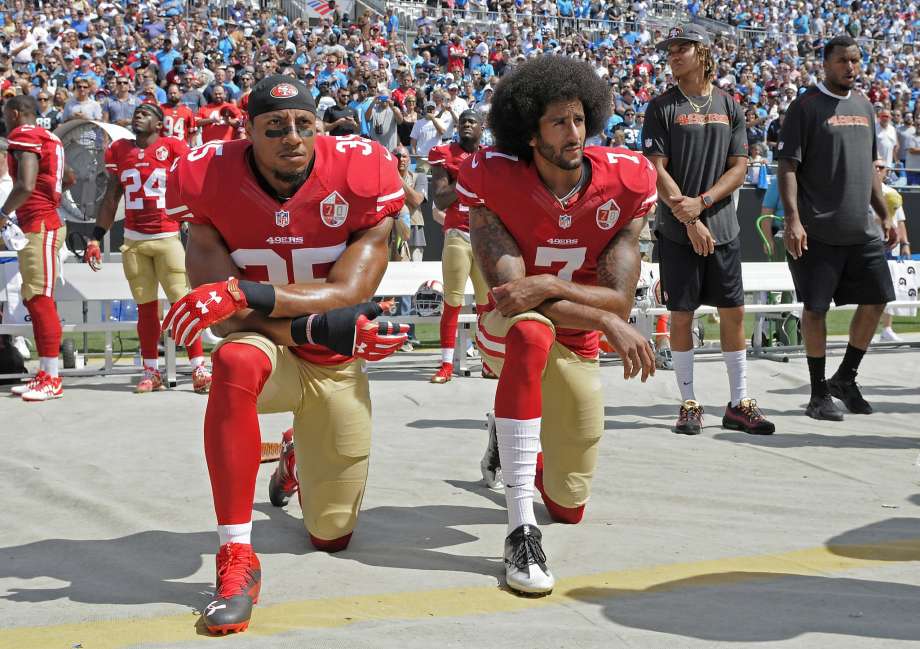Alexander Burns of The New York Times analyzes the escalation of protest within the National Football League over the weekend:
By Sunday, the sports-watching world was confronted with a display of politics in the athletic arena with no recent precedent in the United States — from images of two football squads declining to take the field in Nashville; to a New York Giants star, Odell Beckham Jr., celebrating a touchdown by raising his fist to the air; to a procession of football executives, including some personal friends of Mr. Trump, expressing unease with his remarks. The Rev. Jesse L. Jackson said Mr. Trump had effectively challenged athletes of all races to rise against him, by using language Mr. Jackson described as displaying a “slave-master-servant mentality.” Mr. Jackson said it was incumbent on athletes, irrespective of their race, to show Mr. Trump they could not be belittled or stripped of their right to free speech.
If you haven't been following this story for the last year, Rembert Browne's brilliant long-form piece in Bleacher Report is a good place to start.
Michael Harriott of The Root reminds us that this was never about the National Anthem, anyway:
People aren’t mad at Colin Kaepernick because he sat during a 200-year old song. They are mad because he dared inject the subject of injustice into their pastime. They are upset with him for reminding the world that—for some people—there is no respite from inequality. They are mad because he was too black and unruly when he was supposed to stand in his uniform as an indistinguishable number with his hand over his heart, ready to play the game. But mostly they are mad about the loss of money, ratings and power.
Loyal readers of this blog have been hearing about Colin Kaepernick's dignified protest since last year, and they'll remember the August 2016 interview with historian Jefferson Morley about the layers of significance involved.
I have three quick things to add to this conversation about the NFL, protest, and players who decide to #TakeAKnee.
First, if people are mad about protest ... that's means it's working. Protest is designed to introduce discomfort and elevate discord. Discomfort is a tolerable, acceptable, and necessary consequence of shedding light on important issues. The actual problems of police violence and institutional racism, on the other hand, are intolerable. If you think that "kneeling during a song" is comparable to "the state unaccountably murdering people outside of judicial procedure," you should examine your morals immediately.
Second, while the problem of police violence is racialized, in that it has a disproportionate impact on Black Americans, the response should be uniform and interracial. In particular, White America needs to be louder and more forceful in its support of protest, in all of its forms. While a small group of White NFL players started expressing solidarity with Kaepernick earlier this summer, that's not enough. Colin Kaepernick took a principled position when he introduced kneeling as a particular form of protest. It doesn't matter if you think there's a "better way" for him to express his positions; your solidarity should always outshine your critique.
Finally, just as Thanksgiving offers opportunities for conversations about racial injustice with your White families, the NFL protests are a great time to open up dialogue with the people around you. There is an abundance of misinformation about these protests. YOU are in a position to correct that misinformation. Next Sunday, if you're not boycotting the NFL, and you're watching football with your cousin, talk to him about the real reasons behind the protest. In my experience, those conversations rarely become the unbridled screaming matches that people fear. More often than not, there's personal growth to be achieved.
Have a justice-filled week ...

